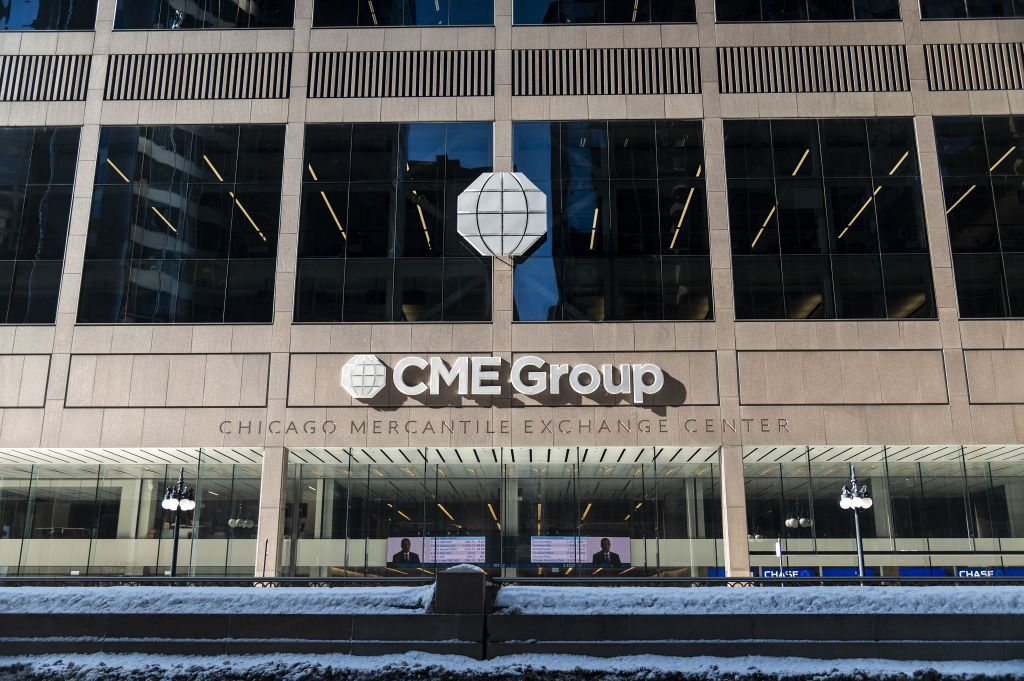Don’t miss this bus: take a bet on National Express
Bus operator National Express is cheap, robust and ideally placed to ride the recovery. Matthew Partridge explains how traders can play it.


Get the latest financial news, insights and expert analysis from our award-winning MoneyWeek team, to help you understand what really matters when it comes to your finances.
You are now subscribed
Your newsletter sign-up was successful
Want to add more newsletters?

Twice daily
MoneyWeek
Get the latest financial news, insights and expert analysis from our award-winning MoneyWeek team, to help you understand what really matters when it comes to your finances.

Four times a week
Look After My Bills
Sign up to our free money-saving newsletter, filled with the latest news and expert advice to help you find the best tips and deals for managing your bills. Start saving today!
The pandemic has wreaked havoc on public transport in the UK. During the first phase of the crisis the number of passengers collapsed as people heeded calls to stay at home. Even during the summer, as restrictions were gradually eased, people were reluctant to return to buses and trains; passenger volumes remained at a fraction of their levels a year ago. With the reinstatement of regional lockdowns now hampering a return to work, it’s no surprise that shares in many bus and train operators remain at extremely low levels.
One company that has been hit particularly badly is bus operator National Express (LSE: NEX). National Express was not only grappling with the decline in bus usage in the UK, but its school bus business in North America, which accounts for around 30% of total sales, has also been hit by the closure of schools across the United States.
While the shares rallied strongly in the weeks after the initial shock in March (when they slumped by 85%), they have drifted downwards since April and are now 60% lower than at the start of the year.
MoneyWeek
Subscribe to MoneyWeek today and get your first six magazine issues absolutely FREE

Sign up to Money Morning
Don't miss the latest investment and personal finances news, market analysis, plus money-saving tips with our free twice-daily newsletter
Don't miss the latest investment and personal finances news, market analysis, plus money-saving tips with our free twice-daily newsletter
A resilient operator
Despite the turmoil, there are several reasons to be positive. Firstly, National Express is not in imminent danger of going under, as it makes a large chunk of its money from contracts with local authorities that ensure it continues to get paid based on the number of buses that it runs, even if they are empty.
As a result, the company managed to keep losses down to £60m in the first half of this year (compared with a profit of £140m in the first six months of 2019). Its decisions to axe its dividend and use government support schemes have also helped it build up its cash reserves, while it raised a further $290m through a share placing in May. Once things do start to return to normal, National Express should be ideally placed to benefit. Even if people end up working from home a lot more, they will still have to make bus journeys for leisure and socialising (trains, on the other hand, rely a lot more on people commuting into work).
It also bodes well that the company has a strong record of growth. It managed to increase its revenue at an average rate of 8% a year between 2014 and 2019, while still maintaining a reasonable return on invested capital (a key measure of profitability) of just under 10%. Its valuation also looks cheap. It trades at a mere eight times expected 2021 earnings and at a 13% discount to the value of its net assets (its book value).
I suggest going long on National Express at the current price of 152p at £13 per 1p. Given that National Express’s shares have been extremely volatile over the past nine months, I recommend putting your stop-loss at 76p, slightly looser than normal, which gives you a potential total downside of £988.
Trading techniques: US presidents and the S&P500 stock index
With the US election nearing, there have been several recent studies examining the returns that investors should expect depending on the result. Looking at the 12 elections from 1972 onwards, Supriya Menon, Arun Sai and Marco Piersimoni of Pictet Asset Management argue that presidential elections have only a “transient” impact on stocks.
In the short run it is hard to spot a consistent pattern: the performance of the S&P 500 in the three months after voting day has ranged from 10.2% after Bill Clinton’s re-election in 1996 to -17.9% after Barack Obama’s victory in 2008.
However, if you take a longer view by looking at elections since 1933, the market tends to do better in the first three months after a Republican victory than under the Democrats, notes Chris Konstantinos of RiverFront Investment Group. Yet if you look at the market’s performance in the first year after voting day, the position is reversed, with higher returns under Democrat presidents. Throwing Congress into the mix, Konstantinos found that the highest returns came from a Democrat president and senate but a Republican-controlled House of Representatives.
Meanwhile, according to Charles Schwab, since 1950 the first, second and fourth years after presidential elections have generally produced broadly similar stockmarket returns. However, the third year after a presidential election tends to be much more lucrative. Since 1950, stocks have rallied 88% of the time during the third year of the presidential cycle, compared with 56% in the first.
How my tips have fared
This has been a good fortnight for my four long tips, all of which appreciated. Industrial and construction-equipment rentals firm United Rentals increased from $176 to $199. Media group and broadcaster ITV went up from 65p to 73p. Cruise ship operator Carnival Corporation climbed from $15.10 to $15.21.
Homebuilder Bellway advanced from 2,360p to 2,691p. As a result, my long tips are making overall profits of £3,572, mainly owing to a £3,276 profit from United Rentals.
The short positions were a slightly different story, with two out of the three moving against me. Online health-insurance firm eHealth rose from $75 to $83. Electric-truck manufacturer Nikola went up from $19.30 to $24.15.
However, the good news was that online furniture retailer Wayfair fell from $300 to $293. Online education provider GSX Techedu rose from $98 to $115.
However, since I suggested that you wait until it falls below $70 before shorting, this won’t have any impact on profits and losses. Overall, my short tips are making a net profit of £1.428.
My open positions are making a combined profit of £5,000, though this is slightly less than the losses on the closed positions.
I now have five long tips (United Rentals, ITV, Carnival Corporation, Bellway and National Express) and three short tips (eHealth, Nikola and Wayfair).
In an attempt to make things a little more balanced I’m going to be recommending some more shorts in the near future.
Finally, as the price of GSX Techedu, which I tipped back in July (issue 1,007), is now far above the price at which I suggested you start shorting it, you should simply cancel the position.
Get the latest financial news, insights and expert analysis from our award-winning MoneyWeek team, to help you understand what really matters when it comes to your finances.

-
 Should you buy an active ETF?
Should you buy an active ETF?ETFs are often mischaracterised as passive products, but they can be a convenient way to add active management to your portfolio
-
 Power up your pension before 5 April – easy ways to save before the tax year end
Power up your pension before 5 April – easy ways to save before the tax year endWith the end of the tax year looming, pension savers currently have a window to review and maximise what’s going into their retirement funds – we look at how
-
 Should you sell your Affirm stock?
Should you sell your Affirm stock?Affirm, a buy-now-pay-later lender, is vulnerable to a downturn. Investors are losing their enthusiasm, says Matthew Partridge
-
 Profit from pest control with Rentokil Initial
Profit from pest control with Rentokil InitialRentokil Initial is set for global expansion and offers strong sales growth
-
 In the money: how my trading tips fared in 2025
In the money: how my trading tips fared in 2025The success of the open positions offset losses on closed ones, says Matthew Partridge
-
 Coreweave is on borrowed time
Coreweave is on borrowed timeAI infrastructure firm Coreweave is heading for trouble and is absurdly pricey, says Matthew Partridge
-
 Circle sets a new gold standard for cryptocurrencies
Circle sets a new gold standard for cryptocurrenciesCryptocurrencies have existed in a kind of financial Wild West. No longer – they are entering the mainstream, and US-listed Circle is ideally placed to benefit
-
 Profit from other investors’ trades with CME Group
Profit from other investors’ trades with CME GroupCME Group is one of the world’s largest exchanges, which gives it a significant competitive advantage
-
 Investors need to get ready for an age of uncertainty and upheaval
Investors need to get ready for an age of uncertainty and upheavalTectonic geopolitical and economic shifts are underway. Investors need to consider a range of tools when positioning portfolios to accommodate these changes
-
 How much gold does China have – and how to cash in
How much gold does China have – and how to cash inChina's gold reserves are vastly understated, says Dominic Frisby. So hold gold, overbought or not